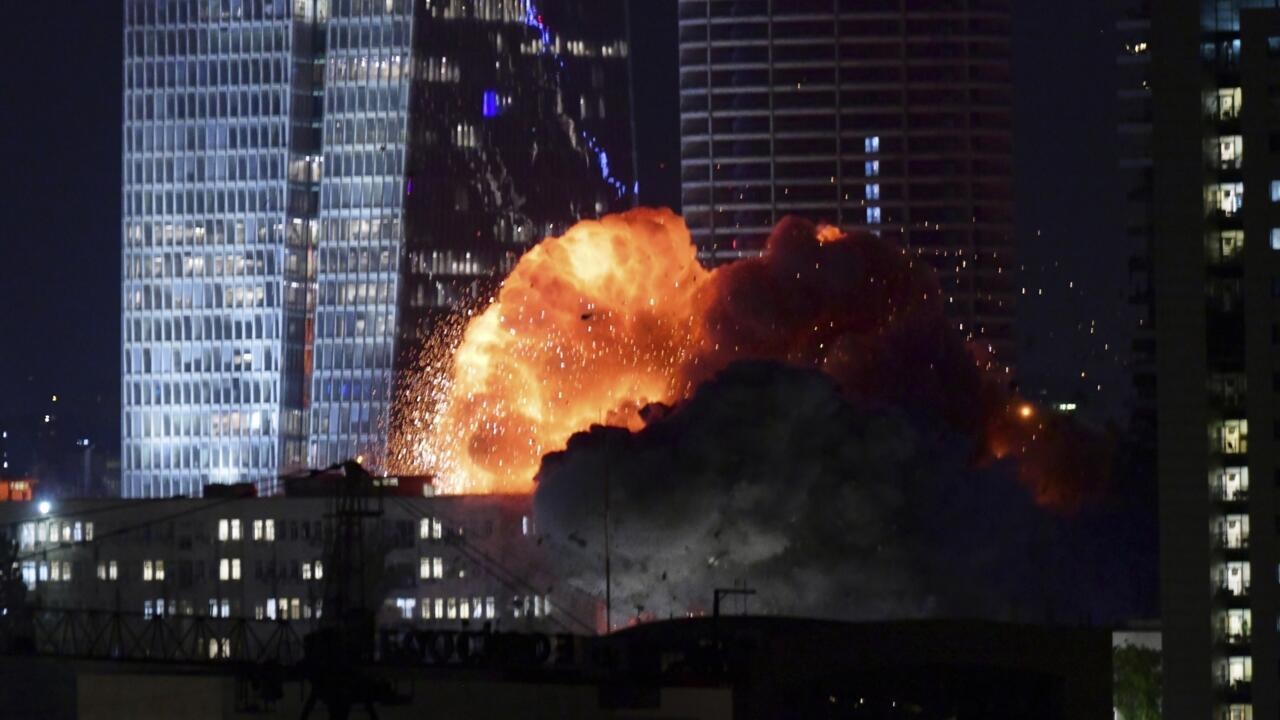During a briefing to the United Nations Security Council on Friday, June 13, 2025, Rafael Grossi, Director General of the International Atomic Energy Agency (IAEA), warned that Israel’s recent strike on an Iranian nuclear site had led to “radioactive and chemical contamination.”
He stated that although the core enrichment facilities remained undamaged, the attack had serious implications.
Grossi explained that Israel had destroyed the above-ground section of the Natanz nuclear complex, a key facility in Iran’s uranium enrichment program.
While the fortified underground operations were reportedly unaffected, a loss of electrical power could have disrupted the centrifuges used in uranium enrichment.
“There is radioactive and chemical contamination at the site,” Grossi reported.
The Israeli operation, named “Rising Lion,” represents a significant escalation in Israel’s long-standing efforts to counter Iran’s nuclear ambitions.
The campaign involved coordinated strikes on several Iranian nuclear and military installations, including major sites in Tehran and provinces in western Iran.
According to Israeli military sources, the operation mobilized 200 fighter jets in what has been described as one of the largest aerial assaults in the region’s history.
Among those killed in the attacks were senior Iranian military figures.
These include Hossein Salami, commander of the Islamic Revolutionary Guard Corps (IRGC), and Ali Shamkhani, a close advisor to Iran’s Supreme Leader, Ayatollah Ali Khamenei.
Their deaths mark a major blow to Iran’s strategic leadership and military command structure.
Despite concerns, the IAEA later clarified that radiation levels outside the Natanz facility remained within normal limits.
However, contamination was confirmed inside the site.
“While there is no rise in radiation outside the facility,” Grossi stated, “radioactive contamination, mostly alpha particles, was detected within the compound.
“These can be managed with proper protective measures.”
Grossi emphasized that he was prepared to visit Iran in person to evaluate the situation.
Addressing the IAEA Board of Governors, he urged all parties to avoid further military escalation.
“Any attack that threatens the safety of nuclear facilities could have severe consequences, not only for Iran but for the broader region and the world,” he said.
The Natanz facility, situated approximately 150 miles south of Tehran, is one of Iran’s most vital nuclear centers.
It houses both a significant underground plant designed for high-capacity enrichment and a smaller, above-ground facility.
Iran has been enriching uranium at Natanz to levels of 60 percent purity, just below the threshold considered weapons-grade.
In response to Israel’s strike, Iran’s Atomic Energy Organization claimed the impact was minimal and asserted that public health was not at risk.
Spokesman Behrouz Kamalvandi stated on Iranian state television that the underground infrastructure remained intact and that operations were expected to resume shortly.
“Some contamination was detected inside the facility,” Kamalvandi admitted, “but it did not spread beyond the site.”
Nevertheless, Grossi noted that Iranian authorities had reported damage at other nuclear locations as well.
These included the Fordow Fuel Enrichment Plant and the Esfahan complex.
It is a critical hub that contains a range of facilities such as a fuel plate production site, a uranium conversion unit, and a plant for enriched uranium oxide powder.
“These developments are deeply alarming,” Grossi said.
“I have consistently stated that nuclear sites must never be subject to military action.
“Such incidents pose significant threats to people, the environment, and international peace.
“The risks to nuclear safety and security are unacceptable.”
Speaking before the Security Council, Grossi reiterated his call for caution.
“As Director General of the IAEA and in alignment with the agency’s mission, I urge all parties to show maximum restraint and prevent this conflict from escalating further.”
Meanwhile, Iran maintains that the situation is under control, and that no widespread contamination has occurred.
But the attack has raised serious concerns within the international community about the stability of the region and the vulnerability of nuclear facilities during wartime.
Israel has announced that it is mobilizing military reservists from various units to bolster both its defensive and offensive capabilities as operations continue.
How Iran will respond, and whether tensions can be defused, remains to be seen.







